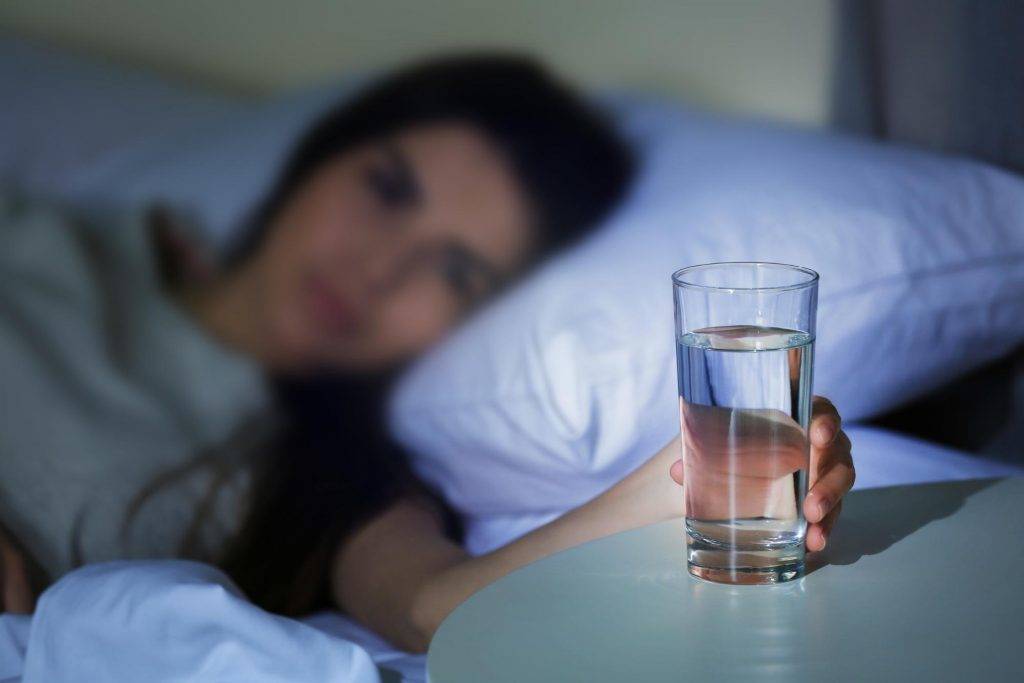You’ve heard the advice time and time again: Drink eight glasses of water (8 ounces each) every day to stay healthy. At first glance, this seems like a reasonable recommendation. After all, our bodies are mostly water, and staying hydrated simply helps us feel better.
However, many people find drinking the recommended 64 ounces of water per day to be difficult. And some who do drink that much water feel like they spend more time visiting the bathroom than anything else. So, if we don’t hit the eight-glass goal, is it really all that bad?
The short answer is no. You probably don’t need to drink precisely that much water, but if you do, more power to you. There are other ways to maintain the right level of hydration your body needs throughout the day.
How Much Water Should You Drink Each Day?
Although experts may disagree on the source of common water intake recommendations, there’s one thing that all doctors and nutritionists agree on: Humans need fluids. However, the specific amount that any individual needs varies according to a number of factors, including their weight, diet, where they live, and even the current season and weather patterns.
There is no one-size-fits-all recommendation for water intake, and different organizations have different standards. For instance, the National Academies of Medicine recommends that women drink at least 11 cups of fluid (not just water) and men drink 16 cups each day. The CDC does not make any specific recommendations for water intake, noting that it varies based on different factors. Specialists at the Harvard School of Medicine recommend drinking four to six cups of water per day, noting that it is possible to drink too much water, especially when you have certain medical conditions.
The bottom line is that there is no “gold standard” for water consumption, but it is still important to consume plenty of fluids every day to remain healthy. Dehydration is detrimental to your health in a number of ways. Since water is often readily available, has zero calories, sugar, and fat, it’s a great option to reach for.
When Should You Drink Water?
The most obvious sign of dehydration is thirst. While certain medical conditions and medications can disrupt the natural thirst response, for most people, the sensation of being thirsty is a very reliable indicator that it is time to drink water.
Otherwise, it’s important to start drinking before you get to the point of thirst, so try drinking at various times of day to make sure you get enough fluids. Start first thing in the morning, but limit how much you’re drinking water before bed, which could interrupt sleep.
Morning
After going all night without a drop of water, it’s time to start rehydrating first thing in the morning. Getting into this habit can help your body digest food more efficiently once you eat breakfast and can improve bowel regularity.
Afternoon
Before lunch or your afternoon snack, try drinking a full glass of water. Drinking plenty of water can help you feel more full, so you don’t eat when you’re not truly hungry. This will also increase your metabolic functions in the short term. In fact, one study found that people who drank at least a liter of water before each meal lost 44% more weight than people who didn’t. Additionally, take a drink before your afternoon workout. It’s always wise to consume water before exercising to make up for fluid lost through perspiration.
Night
There are a few caveats to consider when drinking water at night, especially right before bed. If you consume too much or drink too close to bedtime, you could end up dealing with some less-than-pleasant experiences, like sleep loss.
Nocturia is a condition that occurs when you have to wake up in the middle of the night to empty your bladder. It can be caused by drinking too many fluids, but also by medical conditions like untreated diabetes or urinary tract infections. If you cannot sleep for six to eight hours without needing to go to the bathroom, try reducing the amount you drink before bed or talk to a medical professional.
Sleeping through the night is essential for maintaining your physical and mental health, so stop drinking water about two hours before you plan to hit the hay, especially if you’re having trouble making it through the night.
Young children who have not been potty-trained or those who struggle with bedwetting should also avoid drinking water and other fluids too close to bedtime.
Finally, there are also other specific times when you should increase your fluid intake to combat the effects of dehydration. Breastfeeding mothers, for instance, need to drink more water to make up for lost fluids. When you’re sweating more than usual or have an illness with vomiting and diarrhea, replacing lost fluid is especially important.
7 Reasons to Drink Water
Because the human body is 60% water, maintaining proper fluid balance is a key aspect of maintaining optimum health. Dehydration leads to thirst, headaches, sluggishness, and general fatigue, so these symptoms can be warning signs that your body needs more fluids. In fact, losing just 2% of your body’s water can affect your physical performance, so staying hydrated is key to optimal functioning.
Drinking plenty of water helps your body in many ways:
- Supports kidney health. Your kidneys perform a vital function: removing toxins from your blood and excreting them through the urinary tract. When you drink enough water, your kidneys function as they should, you urinate easily, and your urine is light-colored and odor-free. When you don’t drink enough water, your kidneys have a harder time removing toxins and trap excess fluid to support other bodily functions. This creates darker, odorous urine and can increase your chance of developing painful kidney stones.
- Maintains body fluids. Drinking plenty of water ensures that your body has plenty of fluids to support circulation, digestion, nutrient transport, and nutrient absorption, while regulating your body temperature. Not drinking enough water can disrupt one or more of these processes.
- Supports healthy bowel function. Drinking the right amount of water can help prevent constipation. When you are adequately hydrated, your gastrointestinal tract can keep everything moving along. If you’re dehydrated, your bowels absorb more water to divert to other parts of the body, causing constipation.
- Improves physical performance. As mentioned, losing bodily fluids can decrease physical performance. Water loss via sweat can actually make your workouts feel more difficult, increase fatigue, affect temperature regulation, and place extra stress on your muscles.
- Improves brain function. Even mild dehydration (1% to 3%) can have a significant effect on your mood, ability to concentrate, and energy levels.
- Improves physical appearance. Dehydration can affect your appearance, making your skin look dry and sallow. Although drinking water won’t make the lines that come with age completely disappear, people who drink plenty of water tend to have softer, more supple, and clearer skin.
How to Drink More Water
So if the eight 8-ounce glasses a day recommendation isn’t the best option, how do you know how much fluid to drink each day? Following your thirst will help you stay hydrated, but if you want to avoid feeling thirsty, there are some simple steps you can take to improve your hydration habits:
- Drink a glass of water with every meal
- Carry a refillable water bottle and sip throughout the day
- Try flavored seltzer water if you prefer carbonated drinks
- Eat more water-rich fruits and vegetables like melons, berries, and celery
- Drink water at various times of day, but stop drinking water a few hours before you go to bed to make sure you sleep soundly.
To sum things up, drinking plenty of water is essential to your health. Listen to your body’s signals and incorporate a few of the above tips, and you will be on your way to improved hydration in no time.

